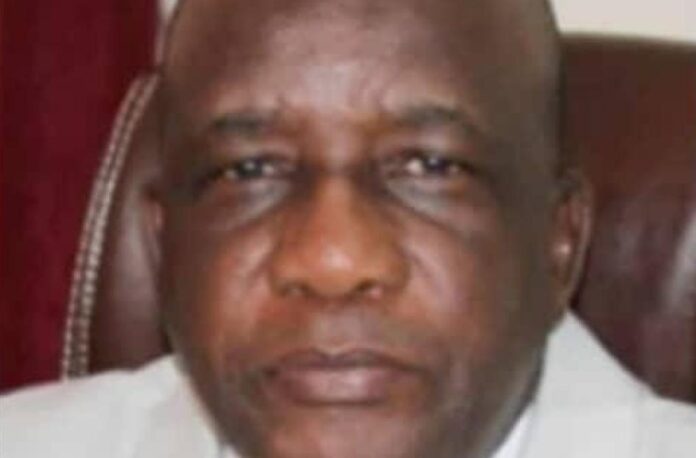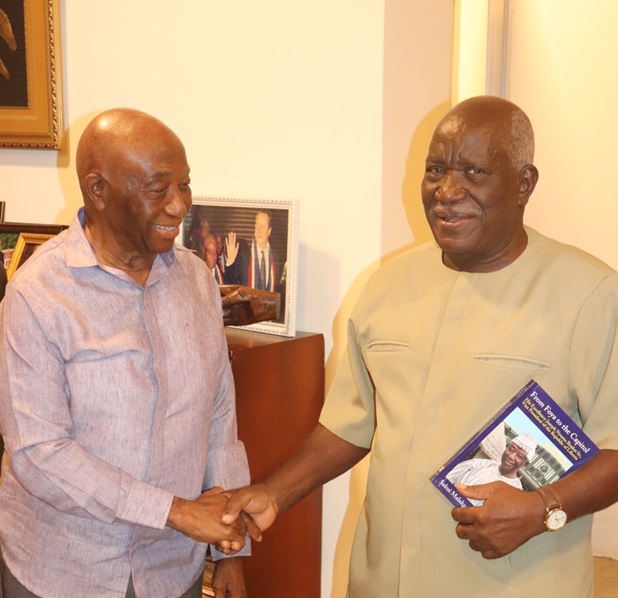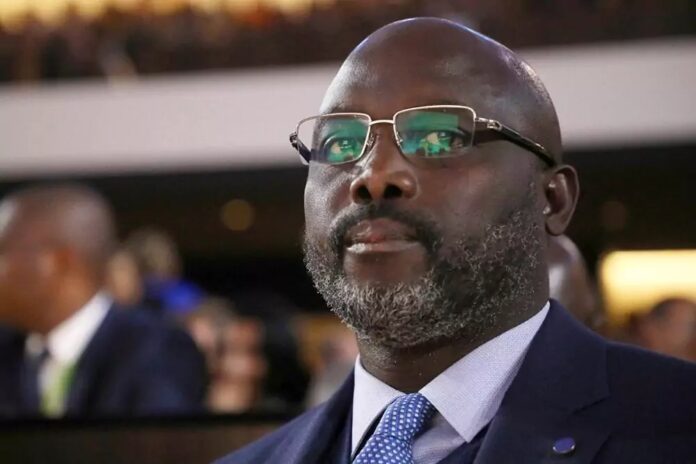By Lamini A. Waritay
Some two months ago, I wrote an article in the Daily Observer newspaper titled “Love of Country—And the Lack thereof”. The opening paragraph of said article read thus:
“Ask Liberians how much they love their country, and, without batting an eye, they will tell you that Liberia is always on their minds. They will go beyond that to assert that anytime they are called upon to even lay down their lives for their country, they will do so in a heartbeat. Yet, whenever situations arise where the rubber meets the road and ‘love of country’ comes calling or demands it, most Liberians end up jettisoning the national cause at the drop of a hat in pursuit of self-interest.” (Daily Observer September 6, 2023).
There can be no greater evidence and validation of this assertion in recent times than the level of political prostitution, cynical betrayals, and shameless media capture involving unethical and corrupt publishers and editors, that has accompanied the ongoing elections exercise in the country—now going into a critical runoff. “Money violence”, as they call it, and selfish considerations, rather than the larger national interest, have characterized not only the electoral discourse, but have also resulted in political alignments and maneuverings that could come to bite many individuals and groups in their behinds down the road. For one who has followed the country’s political environment for several decades now, such political chicanery, opportunism, and national letdowns come as no surprise to me—even when it is led by ‘educated’ Liberians.
Such self-centered attitude toward critical national issues contrasts sharply with my disposition toward national affairs. Whether engaged in advocacy, political involvement, or professional undertakings, two major considerations have always undergirded my stances and actions: (1) My Conscience and (2) the National Interest.
This should explain why:
- In the late ‘70s, when, as a very young staff writer, I endeavored to expand the theater of press freedom by writing critical articles and editorials at a time when the media landscape was timorous and reeked of self-censorship. And I did this while being employed at a government-owned and operated media institution.
- After the 1980 bloody coup, and when criticism of the new military leaders could very easily invite the wrath of the less informed soldiers, I used my position on the government-owned ‘New Liberian’ newspaper as the newly appointed Editor-in-Chief, to excoriate the young junta leaders for their excesses. And, by doing so, I tried in my own small way to discourage the junta from carrying out more executions after the mind-blowing bloodletting they had earlier carried out barely days after the coup. (There were strong rumors swirling at the time that more executions were on the horizon).
- I followed up that daredevil editorial posture with more spirited and energetic commentaries highlighting the increasing tendency of the young leaders to indulge in more corrupt activities than those they had shot out of power—a risky situation that frequently got me into trouble, including threats of a firing squad, detentions, summonses to the Executive Mansion, and investigations at various security agencies over the period, and pressures at the workplace.
- In 1986, when media colleagues elected me as president of the Press Union during a very tumultuous political period, I used the platform that came with the position to apply pressure on the Samuel Doe regime, which was then trying to consolidate its grip on power after previously rigging the elections and subsequently defeating a bloody attempted coup led by Doe’s fellow coupist, Thomas Quiwonkpa. It was a period characterized by media and political repression, including imprisonment of active journalists and publishers (like Kenneth Best, Isaac Bantu, and the late Rufus Darpoh), and opposition political parties (including Ellen Johnson Sirleaf, the late Baccus Mathews, and the late Amos Sawyer). Meanwhile, protesting university students had also become frequent targets of an increasingly insecure military-civilian leadership.
- I chose to lose my teaching job at the University of Liberia rather than cut my links with PUL after the UL administration had come under considerable pressure from the Executive Mansion to give me an ultimatum: Leave the PUL leadership and remain at your UL job, or maintain your “radical” relationship with the PUL and be kicked out of the newly established Mass Communication department where I was one of only two instructors. The UL administration eventually withdrew the ultimatum only after vocalized threats from students to make the campus ungovernable if the university administration went ahead to push me out. When that failed to quieten me, I was tempted with an offer to take an Assistant Minister job at Ministry of Information—which I considered a strategy to unmoor me from the Press Union. I quickly spurned the offer, as a ministerial job was far from being the reason behind my advocacy.
- I agreed to accept my appointment by Interim President Dr. Amos C. Sawyer as Minister of Information in 1991, after it had become clear to me that despite Samuel K. Doe having been taken out of the equation less than a year after the bloody conflict started, Charles Taylor was still hellbent on prosecuting the war in a clear attempt to clinch the leadership of the country outside of the ballot box. Before that realization dawned on me, I had no appetite to serve in the cabinet of the interim government.
- Being the spokesman of a war-time administration squaring up to a dominant and ruthless rebel force (NPFL) in control of much of the country, I became an object of constant threats and vilification by the leadership of the rebel outfit for going toe to toe with the group’s propaganda savvy leader on particularly the international media landscape. During that period, I featured regularly on their ‘Kill List’ and in their discussions on their rebel radio, with some of the fighters even promising to drink palm wine in my skull after they would have managed to eventually capture Monrovia.
- Fast forward to the 2005 post war democratic elections that ultimately pitted a politically sophisticated Ellen Johnson Sirleaf against an ex-professional footballer, George Manneh Weah, I chose to support Madam Sirleaf. It was as clear to me then as it is to me today, that as much as I admired the soccer prowess of Mr. Weah in his hey days, when it came to governing a country (no small feat for even the highly educated and experienced), supporting madam Sirleaf’s candidacy over Weah’s was a very easy choice for me. I had no expectation that a President Weah would be an option in regard to madam Sirleaf. That is why I feel so bemused today to note that this same Madam Sirleaf has remained sitting on the fence in the two successive post-Ellen elections (2017 and 2023) in which her party’s presidential candidate has gone against Weah—with accusations now flying around that she is in fact undermining the party’s quest for the presidency through well-known surrogates.
In making the above political and professional decisions/choices (out of the many I have had to make in the past), most times at considerable risk to my person, my conscience and national interest were the only motivating considerations. As long as I was convinced in my mind that I was doing the right thing, I never shillyshallied over the course of action or the position I should take on any given matter. In my life-long quest over the decades to contribute in my own small way to bringing about a democratic, secure and prosperous Liberia, I have never remained indifferent to the country’s state of affairs. As Edmund Burke stated, and as was echoed by John F. Kennedy subsequently, “The only thing necessary for the triumph of evil is for good men to do nothing”.
That is why, after considering all the variables at play in the current electoral competition, and taking into account what the country has been going through under the present administration, my conscience and my unquenching desire to always seek the national interest have compelled me to root for the UP presidential slate in the run off on November 14. And that is why I’d be casting my lone vote for the Boakai/Koung slate if I were in the country do so–now that their’s is the only opposition presidential ticket left to take on an incumbency that is not an option going forward. “Neutrality” is not, and cannot be, an option under the prevailing circumstances.
From where I sit, the need to have a viable option to what we currently have is not about Ambassador Joe Boakai or Senator Jeremiah Koung or the Unity Party. It is about urgently re-directing the country from the present leadership trajectory of the past nearly six years—which has been characterized by actions, activities, measures, pattern of behavior that, as far as I am concerned, are oppositional to my concept of good and efficient governance/leadership. This decision is without any prejudice whatsoever to the person of Mr. Weah, but simply a reiteration of the positions I took in the elections of 2005, 2011, and 2017—positions which were anchored in my abiding conviction that Liberia deserves a much better governance option; one that can break the jinx of perpetual poverty among the masses by using all the resources of the country for all of its people, rather than for the benefit of just a few.
I have known ex-VP Boakai for over 25 years—both at the personal and official levels. Although our interactions during this period have not been that frequent, the few times I have been privileged to be in his company have often left me with the impression that he is a well-intentioned, soft-spoken and self-effacing person, with a penchant for entertaining anecdotes and snappy wisecracks.
True, the UP-standard bearer is no longer in his prime, and, like many at his age, may have his limitations at this point. Also true, is the fact that power has a way of changing even normally humble persons, and very few leaders have escaped its heady impact on them. That stated, I still cannot for the life of me envisage a President Joe Boakai being a self-seeking and materialistic leader, who will go on a house construction binge, swim in the public coffers, live an opulent and narcissistic life, put square pegs in round holes, create an insecure environment, and run the country on strictly partisan basis by excluding certain regions and ethnic groups from his administration. Neither do I see him as a leader who will create a “them-and-us” situation among the Liberian population—thereby polarizing the population the way it is now.
I am under no illusion that merely electing Joe Boakai as President will be a panacea for all of Liberia’s problems. But given the existing dysfunctional governance system in the country, the option former Vice President Boakai provides in the runoff against President Weah may well constitute, in the short term at least, the light of hope in the darkness of despair that currently hangs over the country.
It is my expectation that if he and his younger running mate win the race, they will move quickly to establish a transitional bridge between what the country’s leadership landscape is now, and a generation of progressive and patriotic leadership that will focus less on the perquisites of power, and more on formulating concrete policies that will improve life for all Liberians, and harness the huge potential of the country to finally dig itself out of a perpetual state of poverty and underdevelopment.
I am confident, that with the right policies, sound and patriotic advisers, efficient, knowledgeable and experienced workforce, and an all-inclusive dynamic government in which every part of the country and all sections of the population will see themselves represented, a Boakai/Koung administration will save the state (in the short term) from its existing paralysis and path to nowhere.
Prof. Lamini Waritay served as Minister of Information in the Amos sawyer-led Interim Government, and also served briefly as Chairman of the Mass Communication department at the University of Liberia. He’s currently a Communications and Political consultant.







